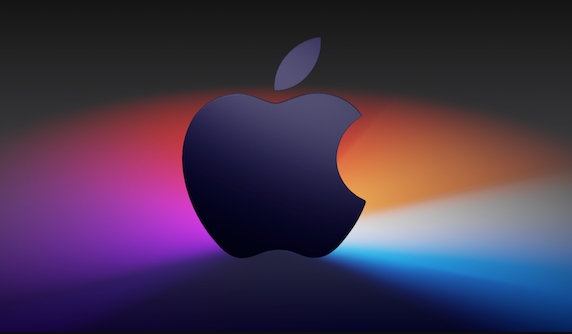Click the sound icon in the menu bar to quickly select an available output device. 2. Go to System Settings > Sound > Output for detailed control over volume, balance, and audio format. 3. Use the Option key with the sound icon or the AirPlay icon to stream audio to AirPlay-compatible devices. 4. Enable Connect audio automatically in Bluetooth settings for seamless switching to Bluetooth devices like AirPods, ensuring they are powered, in range, and properly connected if not appearing.

Switching sound output on a Mac is simple and can be done in a few different ways, depending on your needs. Whether you're connecting headphones, external speakers, or using AirPlay, here’s how to change your audio output.

1. Use the Menu Bar (Quick Switch)
The fastest way to change sound output is through the menu bar:
- Make sure the Sound icon appears in your menu bar.
- If it’s not there, go to System Settings > Sound > Output, and toggle on Show volume in menu bar.
- Click the speaker icon in the top-right corner of your screen.
- A list of available audio output devices will appear.
- Select the one you want (e.g., MacBook Pro Speakers, Headphones, AirPods, or Apple TV via AirPlay).
This method is great for quickly toggling between devices like headphones and Bluetooth speakers.

2. Change Output in System Settings
For more control or to configure advanced settings:
- Click the Apple logo > System Settings (or System Preferences on older macOS versions).
- Go to Sound > Output.
- You’ll see a list of connected output devices.
- Select the one you want to use.
Here, you can also:

- Adjust output volume
- Set balance between left and right channels
- Choose sample rate and bit depth (if using professional audio interfaces)
3. Use AirPlay to Stream to Other Devices
You can wirelessly send audio to AirPlay-compatible speakers or TVs:
- Click the Sound icon in the menu bar.
- Hold the Option (?) key and click the icon — this reveals AirPlay devices.
- Or, click the AirPlay icon (looks like a rectangle with an arrow) in the menu bar (if enabled).
- Choose your AirPlay device (e.g., HomePod, Apple TV, or third-party AirPlay speaker).
AirPlay works even if your headphones are plugged in — useful for sharing audio with others.
4. Automatically Switch to Bluetooth Devices
If you use Bluetooth headphones (like AirPods), your Mac can automatically switch audio output when they connect:
- Go to System Settings > Bluetooth.
- Click the Settings (??) next to your device and make sure Connect audio automatically is enabled.
- Optionally, go to System Settings > Sound > Output and select your Bluetooth device as the default.
Now, when you put on your AirPods, the sound should switch seamlessly.
Pro Tip: If a device isn’t showing up:
- Check that it’s powered on and in range (for Bluetooth).
- Make sure it’s not muted or set to a different input.
- Try disconnecting and reconnecting headphones or restarting Bluetooth.
Basically, switching sound output on Mac is quick once you know where to look — mostly handled through the menu bar or System Settings.
The above is the detailed content of How to change sound output on Mac. For more information, please follow other related articles on the PHP Chinese website!

Hot AI Tools

Undress AI Tool
Undress images for free

Undresser.AI Undress
AI-powered app for creating realistic nude photos

AI Clothes Remover
Online AI tool for removing clothes from photos.

Clothoff.io
AI clothes remover

Video Face Swap
Swap faces in any video effortlessly with our completely free AI face swap tool!

Hot Article

Hot Tools

Notepad++7.3.1
Easy-to-use and free code editor

SublimeText3 Chinese version
Chinese version, very easy to use

Zend Studio 13.0.1
Powerful PHP integrated development environment

Dreamweaver CS6
Visual web development tools

SublimeText3 Mac version
God-level code editing software (SublimeText3)

Hot Topics
 MacBook Pro, iMac to get the M4 upgrade later this year followed by MacBook Air in spring of 2025, claims reliable tipster
Jun 25, 2024 am 06:35 AM
MacBook Pro, iMac to get the M4 upgrade later this year followed by MacBook Air in spring of 2025, claims reliable tipster
Jun 25, 2024 am 06:35 AM
Ever since the Apple M4-powered OLED iPad Prolineuparrived, Apple Silicon aficionados have been eagerly awaiting the arrival of the M4 SoC on the Mac lineup. The M4 was undeniably a major leap forward in both compute and graphics performance - leapfr
 ChatGPT is now available for macOS with the release of a dedicated app
Jun 27, 2024 am 10:05 AM
ChatGPT is now available for macOS with the release of a dedicated app
Jun 27, 2024 am 10:05 AM
Open AI’s ChatGPT Mac application is now available to everyone, having been limited to only those with a ChatGPT Plus subscription for the last few months. The app installs just like any other native Mac app, as long as you have an up to date Apple S
 Apple iPhone 16 is no longer pre-installed with Apple Intelligence
Jul 30, 2024 pm 01:18 PM
Apple iPhone 16 is no longer pre-installed with Apple Intelligence
Jul 30, 2024 pm 01:18 PM
According to industry insider Mark Gurman, Apple’s Apple Intelligence will be postponed to October. In other words, it will be pushed first on iOS18.1. Apple iPhone 16 is expected to be released in September, so Apple Intelligence will not be pre-installed. 1. Apple Intelligence Apple Intelligence is a personal intelligence system that uses a powerful generative model to provide new functions for iPhone, iPad and Mac to assist users in communicating, working and expressing. 2. Natural language understanding The large model embedded in Apple Intelligence has a deep understanding of the meaning of language.
 BenQ unveils MA series of 4K monitors with MacBook-centric features
Aug 28, 2024 pm 12:37 PM
BenQ unveils MA series of 4K monitors with MacBook-centric features
Aug 28, 2024 pm 12:37 PM
BenQ has just announced the MA270U and MA320U, a pair of 4K monitors targeted at MacBook users. They're designed to be paired with the company's Display Pilot 2software, which simplifies screen settings adjustments without having to fiddle with the O
 Balatro Friends of Jimbo free update is live
Aug 28, 2024 pm 12:39 PM
Balatro Friends of Jimbo free update is live
Aug 28, 2024 pm 12:39 PM
With the promise of a significant free update in 2025, Balatro continues to build on the hit deck builder with the second of three free updates. The “Friends of Jimbo” update brings theming options to the face cards of all four card suits. Despite ea
 Guide to installing PHP on Mac
Dec 12, 2024 am 11:46 AM
Guide to installing PHP on Mac
Dec 12, 2024 am 11:46 AM
PHP is a widely used programming language for web development and you can install PHP on your Mac by following these steps
 How to access an NTFS drive on a Mac?
Jun 21, 2025 am 12:08 AM
How to access an NTFS drive on a Mac?
Jun 21, 2025 am 12:08 AM
There are three ways to enable NTFS hard disk write permission on macOS: 1. Use third-party software such as ParagonNTFSforMac, TuxeraNTFSforMac or free Mounty, and automatically support read and write operations after installation; 2. Enable the write function by manually editing configuration files through terminal commands, and SIP needs to be turned off and there is a risk of data corruption, which is suitable for advanced users; 3. Format the hard disk into compatible formats such as exFAT or FAT32 to realize two-way read and write support between Mac and Windows, but will clear the original data.
 How to use an iPad as a second display for Mac
Jul 03, 2025 am 01:01 AM
How to use an iPad as a second display for Mac
Jul 03, 2025 am 01:01 AM
To use the iPad as a Mac sub-screen, you can use the Sidecar function. The steps are as follows: First, make sure the device meets the requirements (Mac will run macOSCatalina and above after 2016, and iPad requires iPadOS13 or above); then go to "System Settings" > "Display" on the Mac, click "Add Monitor" and select iPad to connect; if it is unable to connect, you need to check whether Wi-Fi and Bluetooth are on, and make sure the two devices are in the same network environment. In terms of connection mode, wireless is suitable for daily office work but may have delays, while wired is more stable and supports charging. The display mode is divided into two types: extension and mirroring. It is recommended to use extension mode to improve work efficiency. In addition, it can also be achieved through preferences







